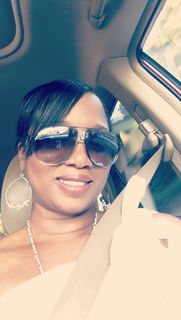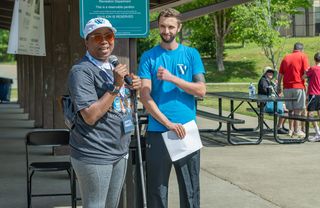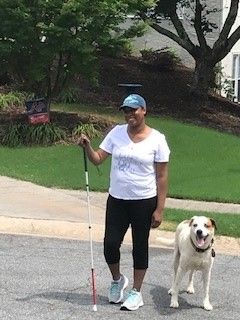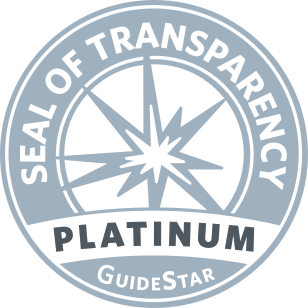Resourceful Advocate for Research
Beacon Stories
Manorthia was diagnosed with retinitis pigmentosa (RP) when she was 22 years old but didn’t start experiencing considerable vision loss until years later. Once she began to notice her vision deteriorating more rapidly, she reached out to the Foundation Fighting Blindness to get involved with the blindness community.

Manorthia smiling and wearing sunglasses in her car.
Long-time Atlanta area resident Manorthia Hairston has an outgoing personality and enjoys being an active member of her community. But in recent years, Manorthia has had to adapt her way of living and get creative due to her diagnosis with retinitis pigmentosa (RP).
Prior to being diagnosed with RP, at 18 years old, Manorthia encountered a blind research student at a city bus stop. He appeared disoriented, so she was compelled to offer him assistance. He accepted her help, they chatted, and he gave her his business card. Later Manorthia reached out to him, and he offered her a job as his guide, providing her orientation and mobility training, and assisting him with research. She didn’t know it at the time, but he was setting the stage for what was to come for her years later.
Manorthia discovered her RP through her twin sister, who was diagnosed at the age of 21 while serving in the U.S. Air Force. When her sister was diagnosed, Manorthia didn’t have any symptoms of RP herself, but her sister’s doctor recommended she go to an ophthalmologist. A year later, at 22 years old, Manorthia was also diagnosed with RP. After genetic testing, both Manorthia and her sister have learned they have genetic mutations in the USH2A gene but don’t have any hearing loss.
As Manorthia’s vision deteriorated more rapidly in the last few years, she grieved for the life she had before her vision loss. Now, she’s learning different ways to adjust her lifestyle.

Manorthia speaking at the 2022 Atlanta VisionWalk.
“I use Instacart and DoorDash for ordering food now,” says Manorthia. “It’s certainly an adjustment, but I want to feel comfortable. Even when I take a Lyft or Uber, the drivers don’t know what my white cane is, so I have to educate people everywhere I go.”
And once she started noticing more vision loss, Manorthia went back to her ophthalmologist, who recommended she reach out to the Foundation Fighting Blindness. At this point, she knew it was time to get involved with the blindness community, so she connected with the Atlanta Chapter and VisionWalk. Manorthia is now the Atlanta Chapter President and a VisionWalk participant for many years.
In 2019, Manorthia started volunteering with the Foundation’s Professional Outreach team. Her work with the Foundation helps eye care professionals and low vision specialists in the Atlanta area provide resources and information to help their patients to better understand and manage their conditions. Manorthia loves to connect with people, so being in a role where she can speak with medical professionals directly is the perfect match for her. Before working with the Foundation, her most recent position was as a special projects coordinator for the Center for Disease Control (CDC), which also hugely impacted her professional experiences.

Manorthia outside walking on the street with her white cane and her dog.
Thanks to Manorthia’s hard work, she’s connected with the Vocational Rehabilitation Services of Georgia, the Center for the Visually Impaired in Atlanta, and disABILITY LINK, all of which provide services for the blind and visually impaired to live more independent lives. Manorthia has also worked with Georgia Retina and Emory Eye Center, specifically Dr. Yan, who is also her ophthalmologist.
“It’s not necessarily about connecting with the doctors, as it’s just as important to connect with the technicians because they’re the ones that are actually serving patients,” says Manorthia. “I always share my story when I’m reaching out, and once they find out I’m personally affected, they realize I know what I’m talking about and how important it is.”
Manorthia has come across people in the blind and visually impaired community who are skeptical of research in the retinal disease space. However, Manorthia continues to have an optimistic spirit and believes the research can be a challenging yet rewarding process. She’s constantly trying to learn more through the Foundation and listening to audiobooks too.
“If I didn’t feel optimistic or connected to the Foundation’s mission, then I wouldn’t be doing all this work,” says Manorthia. “With the way technology is advancing, we are on the verge of coming up with an agnostic treatment for everyone. It’s all about “staying in the climb,” which I adopted from Tyler Perry’s book, Higher Is Waiting. To me, it means whatever you are going through is like a mountain climb. The thinning of the air, the rough terrain, and meandering sharp cliffs. When we reach the peak, we all can turn around and will be able to see with our eyes, the beauty in the climb. This is a journey; I encourage you to “stay in the climb.””




